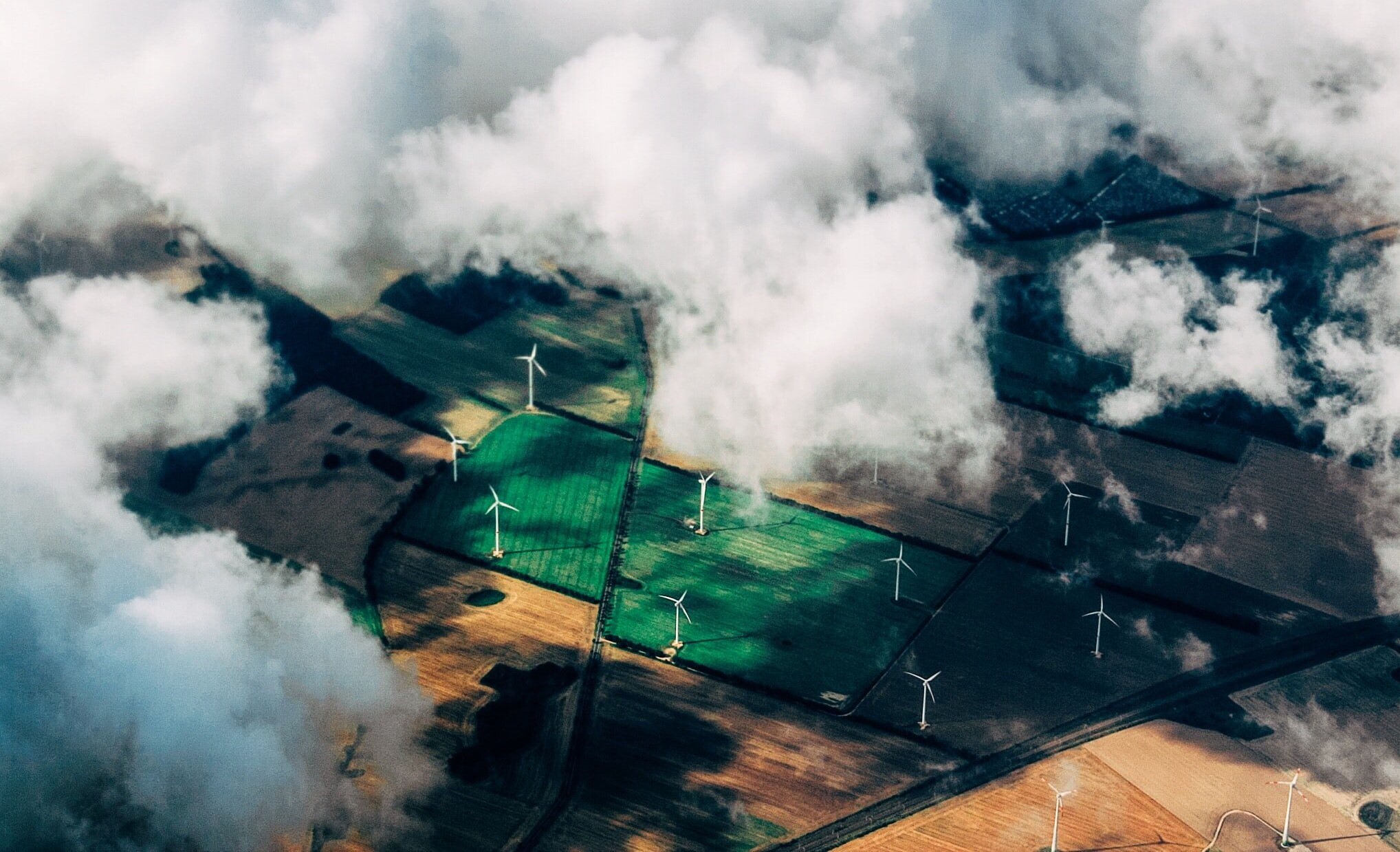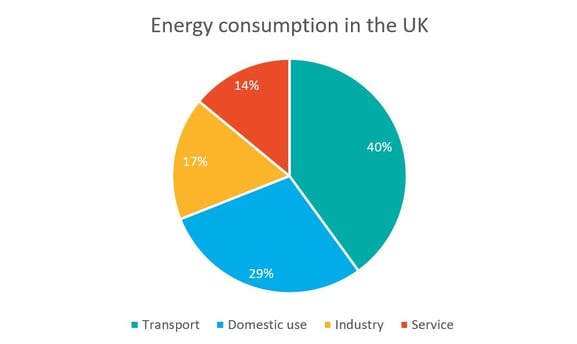
We are all well aware by now of the crisis the world is going through the health risk, economic impact and even emotional toll. Everywhere we navigate, everything we read is related to Covid-19 and health recommendations, adjustments to our lifestyle, how to be productive whilst remote working, how to stay physically and mentally healthy, etc.
In the midst of this, the energy and environmental challenges, which are so relevant to us all, are being left out of the spotlight. This post investigates the effects of lockdown on our overall energy usage, how it relates to and impacts climate change and the relationship with our energy consumption at home.
How does the UK consume energy?
Energy consumption in the UK is made up of four key sectors; transport is the largest and accounts for 40%, followed by the residential/domestic sector at 29%, and the industry and service sectors at 17% and 14% respectively (BEIS, 2016)1.
The measures taken recently to flatten the Covid-19 curve and protect our healthcare system has impacted the shape of the UK’s energy demand significantly. With many productive plants and businesses shut down, commercial demand has naturally fallen and the resultant relocation of our workforce to home offices has conversely seen an increase in residential and domestic demand. The overall impact is that UK energy demand is down by around 10% in total.

CO2 emissions and energy trends
Meanwhile, we’re starting to observe some unusual trends going on worldwide. Green energy continues to be generated but the reduction in commercial daytime usage has resulted in a shortage in demand to absorb it. Renewable energy, such as wind, goes to waste when it’s not used, so on Sunday 5th April, the country witnessed negative electricity prices during the day for the first time ever. That means users registered for ‘agile tariffs’ were actually paid to use electricity. Yes, people got paid for actively using energy to bake bread, do their laundry and play video games! Agile tariffs are not a new thing but users have only previously been paid to consume energy during overnight periods.
How is this possible? Wind farms generate almost 40% of the UK’s electricity, while solar power makes up almost 20% and fossil fuels and coal plants account for around 16%. The lack of daytime demand could have led to a shutdown of green energy production, but instead, energy suppliers paid their customers to use that excess energy at times that make the grid’s operation greener and more efficient.
It would be natural to think that such efficiencies coupled with lower economic activity, and a dramatic reduction in travel, would have had a positive impact on greenhouse gas emissions. While this is true to an extent, many experts are already far from certain as to how long-lasting the benefits of this fall in emissions will be. There are a few reasons for this scepticism.
A fall in emissions may not be long lasting
Firstly, global production and supply chains that support the energy sector have been affected by lockdowns. This has had a knock-on effect on efforts to increase renewable energy efficiently.
Secondly, in the face of a pandemic emergency, things like decarbonisation and deployment of renewable energy have become less relevant in government agendas worldwide.
Finally, the priority of all nations is likely to be ensuring the energy security of their country to support the recovery of global economies. Or in other words, making sure that energy demand is met at all costs when industry and commerce begin to operate again. Achieving this during a crisis may mean going back to coal, oil and other significantly polluting resources, to meet ‘shorter term’ needs. Essentially, this could mean overall energy demand rebounds, even more, to take advantage of cheaper fossil fuels. This in turn could significantly increase carbon intensity and reverse years of effort to reduce greenhouse gas emissions.
Digital transition of our energy system
This challenge is one of the reasons why it is more important than ever to support the digital transition of our energy system. More efficient and intelligent operating systems could make a huge difference in counterbalancing the potentially volatile impact that significant spikes in cheaper fossil fuels could have. Likewise, schemes such as agile tariffs or new technology & platform innovations will enable us all to take a more active role in enabling a greener energy system. By making wiser decisions that ultimately reward us for saving energy one way or another, we can collectively do our bit to create a more sustainable planet.
These are unprecedented and complex times for us all, but we also have a huge opportunity to use this lockdown period to consider new ways in which we can embrace positive collective change from within our homes!
If you’re interested in better managing how you use household energy, please try out Equiwatt and share it with your communities here.
1- National Statistics (2019) Energy Consumption in the UK















